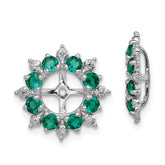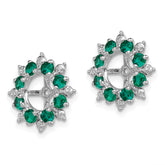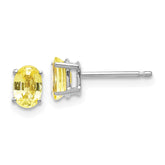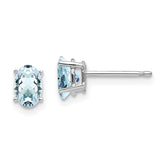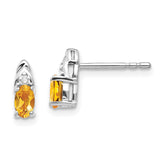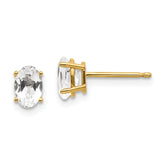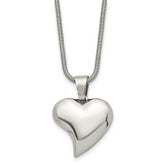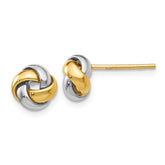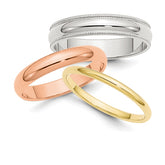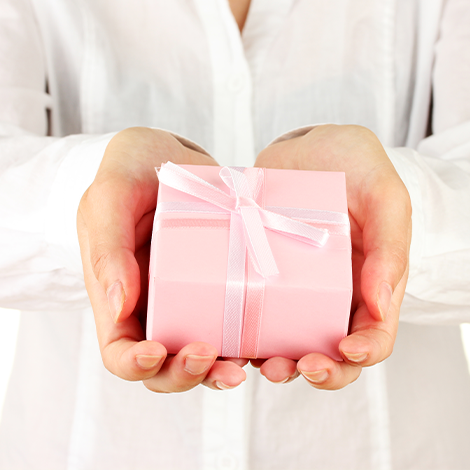The Symbolism and Significance of Birthstone Gemstones
The Symbolism and Significance of Birthstone Gemstones
The debate over fate versus free will has always been a captivating topic. Are our lives guided by some grand cosmic plan, or are they shaped by the choices we make? While there may never be a definitive answer, what we do know is that our beliefs shape our experience of the world. This is where birthstone gemstones come in—they provide a tangible way for people to feel connected to the energies they believe influence their fate. Whether or not you believe in their mystical properties, birthstones offer a rich tradition that ties individuals to something greater.
Birthstones and Astrology
Every zodiac sign is associated with a particular birthstone, believed to bring good fortune to those born under that sign. This link to astrology is perhaps the most straightforward explanation for the importance of birthstones. Historically, gemstones have served as talismans to ward off evil, attract prosperity, and strengthen one’s connection to the divine. People wear these gemstones hoping for positivity, protection, or enhancement in their lives. In countries like India, these beliefs run deep. Many people consult astrologers who, after reading birth charts or palms, may suggest wearing or avoiding specific gemstones to ward off misfortune.
In India, Vedic astrology prescribes certain stones to counteract the effects of unfavorable planetary alignments. The belief is that each gemstone has properties that can influence the celestial forces acting upon an individual. Even in Western cultures, birthstones carry symbolic value—often given to celebrate a birthday or anniversary, they offer a comforting link to the mysteries of the cosmos. For many, these gemstones serve as reminders of the connection between the individual and the vastness of the universe.
The Psychological Power of Birthstones
Some may dismiss the practice of wearing birthstones as superstition, but others treat it with sincere conviction. From a psychological perspective, the belief that you are taking action to improve your situation—whether through astrology or wearing a birthstone—can lead to positive outcomes. This is similar to the placebo effect, where belief alone can bring about real benefits. If wearing a particular gemstone makes someone feel more confident, resilient, and in control, that mindset can lead to actual improvements in their well-being. Conversely, if someone forgets to wear a stone they believe is essential, it can lead to anxiety or a sense of vulnerability.
A Look at the History of Gemstones
Gemstones have been valued throughout history not only for their beauty but also for their perceived mystical and protective properties. Ancient civilizations used gemstones as tools to ward off evil or misfortune. For example, the Egyptians believed that turquoise and lapis lazuli had divine qualities, capable of connecting the wearer to higher realms. In medieval Europe, amulets containing gemstones were worn to protect against plagues or curses. This rich history reveals that gemstones have always been seen as more than just decorations—they are symbols of a deeper, spiritual connection.
Modern Appeal of Birthstones
Today, many people choose birthstones primarily for their ornamental value. These gemstones are embraced as fashionable symbols of personal identity. Whether worn for their supposed mystical benefits or simply for their beauty, birthstones represent a connection to history and a personal statement. Their vivid colors and unique characteristics evoke emotions and create a sense of attachment, making them much more than mere accessories.
Different Types of Birthstones
Birthstone gemstones can be categorized in a variety of ways, including mystical stones, Ayurvedic stones, traditional and modern birthstones, astrological stones, and talismanic stones. Mystical birthstones are based on ancient Tibetan beliefs, while Ayurvedic birthstones come from India's traditional healing practices. Astrological and planetary stones are linked to the zodiac and celestial bodies, thought to influence different areas of life. Talismanic stones are believed to have protective qualities. Each category offers a unique way of understanding and appreciating the significance of birthstones, reflecting their diverse cultural heritage.
Birthstones in Popular Culture
In the 1960s and 1970s, birthstones experienced a surge in popularity in Western culture. During that time, there was a growing interest in Eastern philosophies and spiritual traditions. The counterculture movement embraced gemstones as symbols of personal empowerment and spiritual connection. For those who grew up in that era, gemstones often carry a nostalgic appeal, representing a time of exploration and self-discovery. Today, birthstones are still popular gifts for birthdays, Mother's Day, and anniversaries, and their wide array of colors makes them perfect for personalizing jewelry to reflect one’s identity.
Colors and Symbolism of Birthstones
The wide variety of birthstone colors adds significantly to their appeal. Each gemstone's color is thought to embody certain qualities or energies. For instance, garnet, the birthstone for January, is a deep red that symbolizes strength and vitality. February’s amethyst is known for its calming purple hue, which represents clarity and inner peace. Emerald, the green birthstone for May, stands for renewal and prosperity, while sapphire, the birthstone for September, symbolizes wisdom and integrity. These vibrant colors make birthstones not only visually stunning but also meaningful, allowing wearers to connect with the qualities they wish to express or attract.
Birthstones: Value and Accessibility
Birthstone gemstones come in a wide range of sizes and values. Like other jewelry, the value of a birthstone often increases with its size and rarity. Smaller stones are typically used in rings and earrings, while larger gemstones are reserved for necklaces or elaborate brooches. The price range can vary greatly—from inexpensive pieces to valuable, rare gems costing thousands of dollars. This accessibility means that almost anyone can enjoy the beauty and significance of birthstones, regardless of their budget. Whether a simple charm or an extravagant necklace, these gemstones provide a tangible link to personal history and beliefs.
Birthstones as Family Heirlooms
Birthstones are often passed down through families, becoming cherished heirlooms. A grandmother's opal pendant or a mother's ruby ring carries stories that transcend their monetary value, creating an emotional bond across generations. Gifting birthstone jewelry for life events—like the birth of a child or a significant birthday—adds layers of meaning, transforming these gemstones into symbols of love, continuity, and family legacy.
Conclusion: The Lasting Influence of Birthstones
While some may view the belief in gemstones' metaphysical properties as superstition, there is no denying the impact that these stones have on those who wear them. Whether it’s for comfort, protection, or simply the joy of wearing something beautiful, birthstones hold a special place in both cultural traditions and modern fashion. Their enduring popularity speaks to a universal human desire to find meaning and to connect with the natural world in a personal way.
Birthstones are fascinating because they blend the mystical, the historical, and the beautiful. Whether worn as a fashion statement, a sign of one’s astrological sign, or a personal good luck charm, these gemstones remind us of the deep connections between humanity and nature. In a world that can be unpredictable, birthstones provide a small but meaningful way to feel connected, protected, and empowered.


